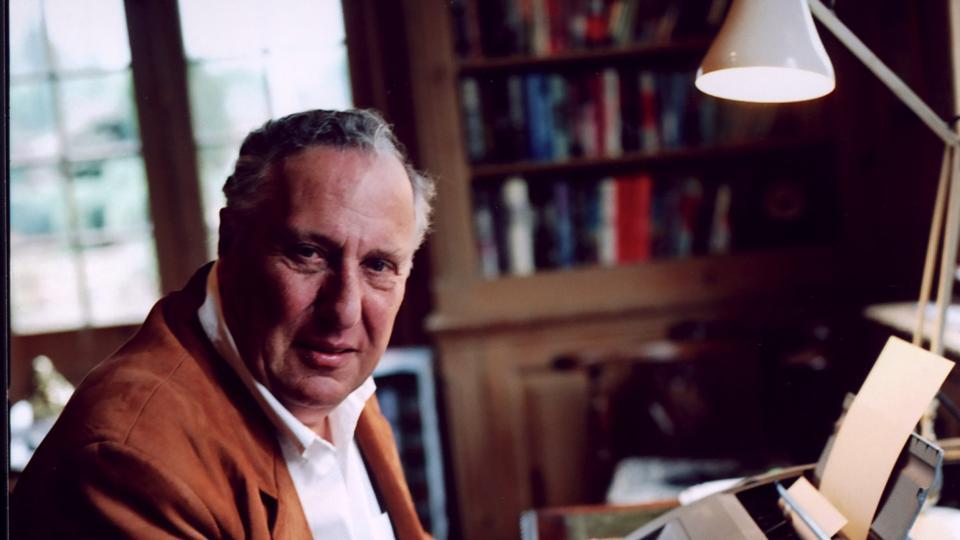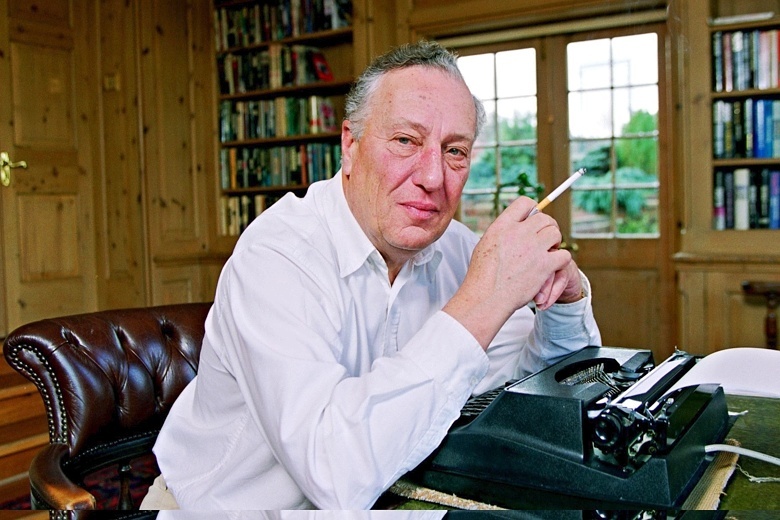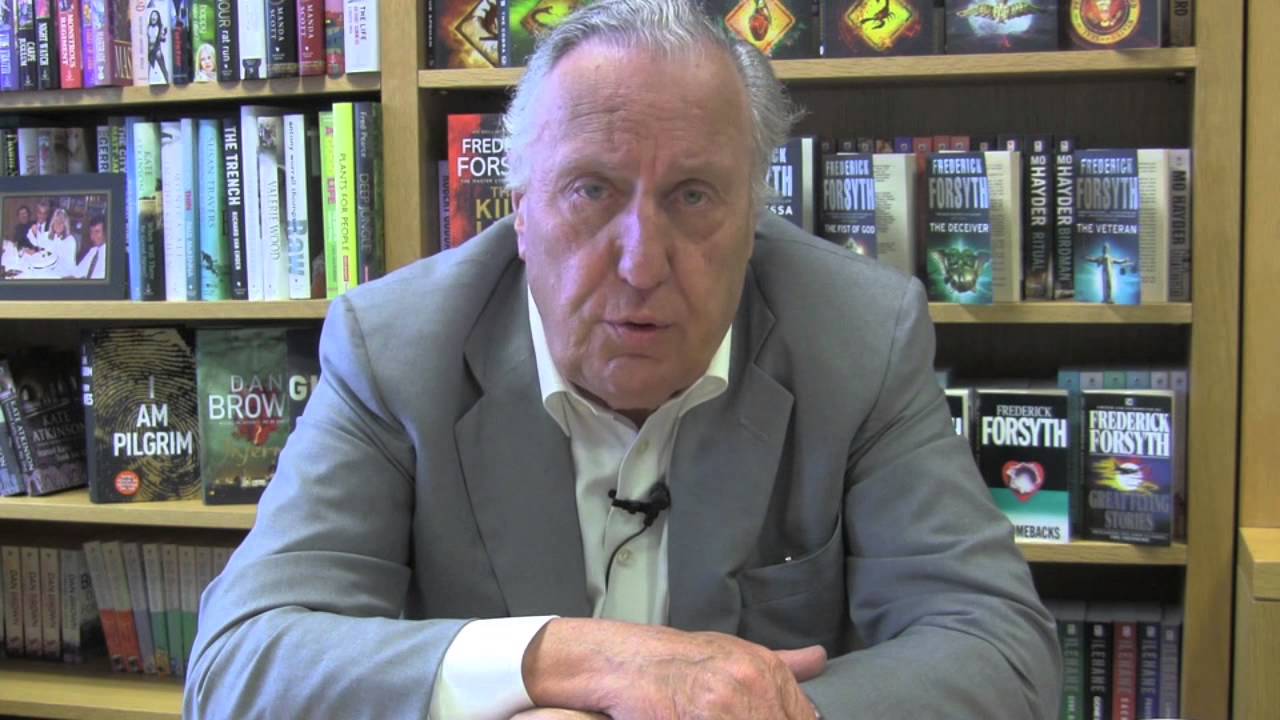Frederick Forsyth (conceived August 25, 1938, Ashford, Kent, England), British author of top-of-the-line thrill ride novels, noted their editorial style and high-speed plots dependent on global political issues and characters. Forsyth went to the University of Granada, Spain, and served in the Royal Air Force prior to turning into a writer. He was a columnist for the Eastern Daily Press’s British paper from 1958 to 1961 and a European reporter for the Reuters news organization from 1961 to 1965. He functioned as a reporter for the British Broadcasting Corporation until he was reassigned in 1968, after condemning the British guide to Nigeria during the Biafran war; The Biafra Story (1969) was his verifiable history of the conflict. His encounters as a news reporter gave Forsyth the information to compose reasonable thrill rides.
List of Forsyth’s Novel
Forsyth’s first and most-appreciated novel, The Day of the Jackal (1971; film 1973 and 1997 [the last as The Jackal]), depends on reports he had known about a genuine endeavor to kill French Pres. Charles de Gaulle. A few other painstakingly investigated spine chillers followed, including The Odessa File (1972; film 1974), about a quest for a Nazi conflict criminal, and The Dogs of War (1974; film 1980), about an uprising in an anecdotal African country. Forsyth’s works underscore the force of people to change the world and history. His later novels incorporated The Devil’s Alternative (1979), The Fourth Protocol (1984; film 1987), The Negotiator (1989), The Fist of God (1994), Icon (1996; TV film 2005), Avenger (2003; TV film 2006), The Kill List (2013), and The Fox (2018).

Pic credit- hindustantimes.com
Among his brief tale assortments were No Comebacks (1982) and The Veteran (2001). A considerable lot of his novels and stories were adjusted for film and TV. The authenticity of his works raised the hypothesis that Forsyth had worked for the British knowledge organization MI6. In 2015, without further ado before the arrival of his life account, The Outsider: My Life in Intrigue, Forsyth affirmed the bits of gossip. He asserted his relationship with MI6 started during the Biafran war and proceeded for over twenty years. In 1997 he was named Commander of the Order of the British Empire (CBE).
Military and reporting
Before turning into a columnist, Forsyth finished his National Service in the Royal Air Force as a pilot, where he fled Havilland Vampire. He joined Reuters in 1961 and later the BBC in 1965, where he filled in as an aide strategic journalist. Forsyth investigated his initial exercises as a writer. His initial profession was spent covering French issues and the endeavored death of Charles de Gaulle. As a BBC correspondent, he had never been to what he named “dark Africa” until investigating the Nigerian Civil War among Biafra and Nigeria. He was there for the initial half-year of 1967, yet hardly any normal the conflict to keep going extremely long considering the helpless weaponry and readiness of the Biafrans when contrasted with the British-equipped Nigerians.
After his half year was finished, be that as it may, Forsyth – anxious to continue announcing – moved toward the BBC to inquire whether he could have additional time there. He noticed their reaction:
I was told obtusely, then, at that point, ‘it isn’t our approach to cover this conflict.’ This was when the Vietnam War was the first page featured consistently, viewed extensively as an American rooster up. This especially British cockerel up in Nigeria was not going to be covered. I smelt news for the executives. I don’t care for the news. So I made a private pledge to myself: ‘you may, men of their word, not be covering it, however I will cover it.’ So I quit and flew out there and remained there for the majority of the following two years.
Forsyth as a Radio Telecaster
He consequently got back to Biafra as an independent columnist, composing his first book, The Biafra Story, in 1969. In August 2015, Forsyth uncovered that he was a source for MI6 in Biafra, a relationship that proceeded for a very long time. As indicated by Forsyth, he was not paid. He is an incidental radio telecaster on policy-driven issues and has likewise composed for papers throughout his vocation, remembering a week-by-week page for the Daily Express. In 2003, he scrutinized “gay-bashers in the places of worship” in The Guardian paper. He has portrayed a few narratives, including Jesus Christ Airlines, Soldiers: A History of Men in Battle, and I Have Never Forgotten You: The Life and Legacy of Simon Wiesenthal.
When did he decide to start Writing?
Forsyth chose to compose a novel utilizing comparative examination methods to those utilized in news-casting. His first full-length novel, The Day of the Jackal, was distributed in 1971. It turned into a global bestseller and acquired its author, the Edgar Allan Poe Award for Best Novel. The Organization Armée Secrète recruits a professional killer to kill then-French President Charles de Gaulle in this book. It was made into a film of a similar name.
In Forsyth’s second full-length novel, The Odessa File (1972), journalists find an ex-Nazi SS official in contemporary Germany. The correspondent finds him using the journal of a Jewish Holocaust survivor who ended it all before; however, he is being safeguarded by an association that ensures ex-Nazis, called ODESSA. This book was subsequently made into a film with a similar name, featuring Jon Voight; however, there were significant modifications. Many of the novel’s perusers accepted that ODESSA truly existed, yet students of history conflict.
The Christmas of the 1950s Changes so many things.
In The Dogs of War (1974), a British mining leader enlists a gathering of hired soldiers to topple the public authority of an African nation so he can introduce a manikin system that will permit him modest admittance to a huge platinum-mineral hold. This book was likewise adjusted into the 1980 film featuring Christopher Walken and Tom Berenger.
The Shepherd was a shown novella distributed in 1975. It recounts a horrible excursion by an RAF pilot while flying home for Christmas in the last part of the 1950s. His endeavors to track down a normal clarification for his possible salvage demonstrate as problematic as his experience.
Following this came The Devil’s Alternative in 1979, which was set in 1982. In this book, the Soviet Union faces a grievous grain gathering. The US is prepared to help with some political and military concessions. A Politburo group battle results. War is proposed as an answer. Ukrainian political dissidents muddle the circumstance later. Eventually, a Swedish oil big hauler worked in Japan, a Russian aircraft captured West Berlin, and different governments included. Frederick Forsyth has created an exemplary spine chiller that is likewise shockingly significant.
Frederick Forsyth’s Need of Money
In 1971, Frederick Forsyth, then, at that point an independent correspondent needing cash, distributed his first novel, “The Day of the Jackal.” His story of a plot to kill French President Charles de Gaulle won worldwide achievement and set up Forsyth as one of the world’s chief government operative novelists. Presently, at age 80, Forsyth has distributed his seventeenth novel, “The Fox.” It is in one respect an odd story, but at the same time, it’s cunning, expertly composed, and a genuine gander at global contentions that compromise the fate of the world.

Pic credit- knowledgebunker123mindloader.wordpress.com
The novel’s two fundamental characters could barely be more different. Sir Adrian Weston is a 70-year-old retired senior British insight official who stays persuasive because Prime Minister Marjory Graham confides in him. Sir Adrian is the novel’s cerebrums, inner voice, and saint. The other lead character is Luke Jennings, an 18-year-old who sports a wild mop of light twists and experiences a serious instance of Asperger’s condition. In the beginning, Luke lives with his folks in a humble house in a London suburb where he invests a large portion of his energy in the loft on his PC. Luke has, by one way or another, fostered a peculiar capacity to get through PC safeguards. That gift is the spring of Forsyth’s novel.
What number of books has Frederick Forsyth sold?
Forsyth’s works habitually show up on success records, and in excess of twelve of his titles have been adjusted to film. By 2006, he had sold more than 70 million books over 30 dialects.
What is the importance of Frederick Forsyth?
The name Forsyth is derived from the old Gaelic individual name Fearsithe, which means man of harmony. Notwithstanding, some recorded instances of the family name Forsyth recommend that at times a nearby name got from home a spot named Forsythe. The Picts of old Scotland were the clan of the precursors of the Forsyth family. The name Forsyth is derived from the old Gaelic individual name Fearsithe, which means man of harmony.
Nonetheless, some recorded instances of Forsyth’s family name recommend that it is sometimes a nearby name from home, a spot named Forsythe. There are all the earmarks of being two starting points for the family: Stirlingshire and Edinburghshire. Another source guarantees the family came from “Forcett (whence additionally Fawcett) a municipality in the wapentake of Gillingwest, in the North Riding of Yorkshire.” Yet, this current source’s case is suspicious.
Conclusion
Frederick Forsyth is and will be one of the finest novel writers of all time because of his incredibly amazing way of setting the platform to explain what he wanted. You can find and read all of his books on Amazon at a discounted price. You can also find them in book stores nearby you. I must say, his novels are worth reading. You will learn so many things that no other book will teach you.










